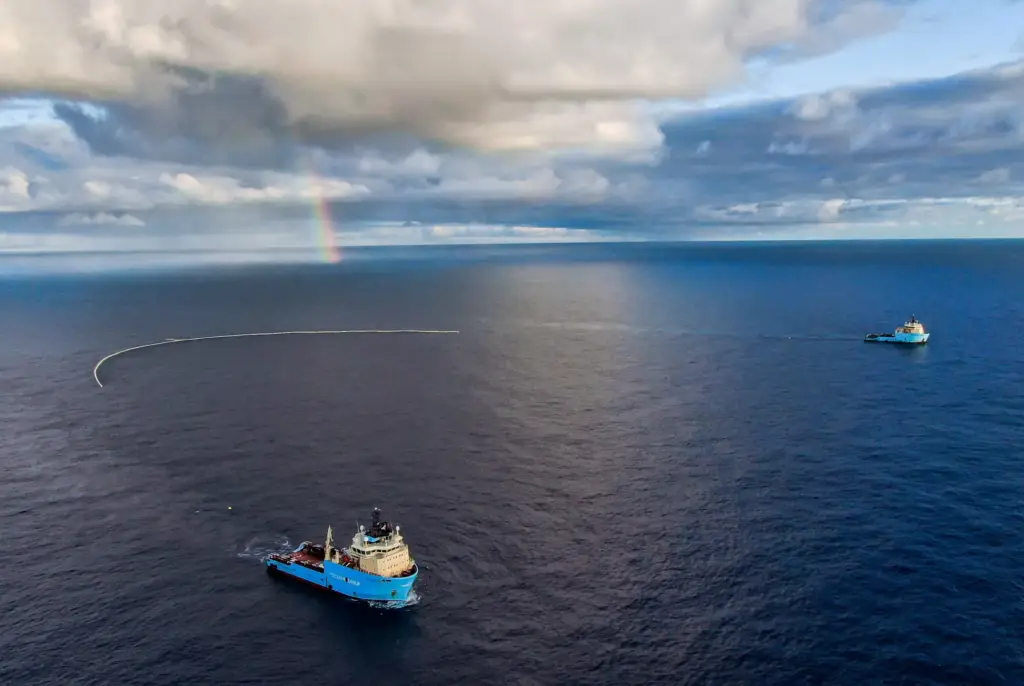
Our Sustainability Strategy
Sustainability Strategy is the the cornerstone for Pascal Offshore’s “Sustainability Vision 2040”
Pascal offshore is committed to leading the marine offshore supply vessel industry towards a more sustainable future. Recognizing the critical role that the maritime sector plays in global trade and energy supply, we aim to minimize our environmental impact while enhancing our operational efficiency and contributing to the well-being of the communities we serve. This strategy outlines our approach to sustainability, detailing our commitments, goals, and the actions we will take to achieve them.
Our Sustainability Goals
Carbon Neutrality
Emission Reduction
Waste Management
Energy Efficiency
1. Environmental Stewardship

A. Emission Reduction
Alternative Fuels: Transition to low-carbon and alternative fuels such as LNG, hydrogen, and biofuels across our fleet.
Hybrid and Electric Propulsion: Invest in hybrid and electric propulsion technologies for new vessels and retrofit existing ones where feasible.
Emission Control Technologies: Implement advanced emission control systems like scrubbers and selective catalytic reduction (SCR) to meet and exceed MARPOL regulations.

B. Energy Efficiency
Optimized Routing and Speed Management: Utilize advanced software for optimized routing and speed management to reduce fuel consumption.
Hull and Propeller Optimization: Invest in regular maintenance and upgrades to hull designs and propeller systems to improve energy efficiency.
Vessel Upgrades: Continuously upgrade our vessels with the latest energy-efficient technologies and materials.

C. Waste Management
Waste Reduction Programs: Implement programs aimed at reducing onboard waste, focusing on recycling and minimizing single-use plastics.
Hazardous Waste Management: Ensure the safe and responsible handling, storage, and disposal of hazardous materials in compliance with international regulations.

D. Marine Ecosystem Protection
Ballast Water Management: Adhere to the Ballast Water Management Convention to prevent the spread of invasive species.
Support for Marine Conservation: Engage in and support marine conservation initiatives and participate in ocean clean-up efforts.
2. Social Responsibility

A. Community Engagement
Local Communities: Collaborate with local communities, particularly those near our operational areas, to support sustainable development and address community concerns.
Educational Initiatives: Partner with educational institutions to promote maritime careers and sustainability education.

B. Employee Well-being
Safety and Training: Provide ongoing safety and sustainability training for all employees, with a focus on best practices in environmental management.
Diversity and Inclusion: Foster a diverse and inclusive workplace that respects and values all employees.
3. Governance and Compliance

A. Regulatory Compliance
Proactive Compliance: Stay ahead of regulatory changes by actively engaging with industry bodies and adopting best practices that exceed minimum requirements.
Transparent Reporting: Commit to transparent sustainability reporting, adhering to frameworks such as the Global Reporting Initiative (GRI) and the Task Force on Climate-related Financial Disclosures (TCFD).

B. Stakeholder Engagement
Supplier and Partner Collaboration: Work with suppliers and partners to ensure that sustainability is embedded throughout our supply chain.
Customer Engagement: Communicate our sustainability efforts to clients, emphasizing the environmental and social benefits of working with us.
4. Monitoring and Continuous Improvement

A. Performance Tracking
Data Collection: Implement robust systems for collecting and analyzing data on environmental performance, fuel consumption, emissions, and waste.
Regular Audits: Conduct regular environmental audits to ensure compliance and identify areas for improvement.

B. Reporting and Accountability:
Annual Sustainability Report: Publish an annual sustainability report that details our progress towards our goals and outlines future initiatives.
Continuous Improvement: Regularly review and update our sustainability strategy to incorporate new technologies, regulatory changes, and industry best practices.
5. Innovation and Investment

A. Research and Development:
R&D Investment: Allocate resources to the research and development of new technologies that reduce environmental impact and improve operational efficiency.

B. Sustainable Financing:
Green Financing: With the Pascal Capital Group’s diverse private equity experience Pascal Offshore will promote and explore opportunities for green financing, including green bonds and loans, to fund sustainability projects.
Pascal Offshore is dedicated to driving sustainability in the marine offshore supply vessel industry. By implementing this strategy, we will not only meet our regulatory obligations but also set new standards for environmental and social responsibility. Our commitment to continuous improvement and innovation will ensure that we remain at the forefront of sustainable maritime operations, delivering value to our stakeholders and protecting the environment for future generations.
Our sustainability strategy provides a comprehensive framework that balances environmental, social, and economic considerations, ensuring a sustainable future for the company.
